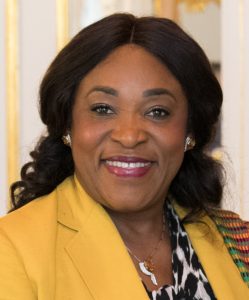Belarus ruler claims landslide in ‘sham’ election
3 min readBelarusian President Alexander Lukashenko has claimed a decisive victory in an election that has been widely criticized by Western governments as a farce. According to Belarus’ Central Election Committee, Lukashenko secured 86.8% of the vote, with an alleged voter turnout of almost 87%. The election results have sparked outrage and accusations of a rigged process, given the lack of credible opposition and independent oversight.
Despite five candidates appearing on the ballot, all of them were carefully selected to avoid posing any real challenge to Lukashenko’s grip on power. Notably, the country’s opposition figures were either imprisoned or forced into exile, leaving no genuine contenders to challenge the long-time ruler. The absence of independent observers during the election further casts doubt on the legitimacy of the vote.
The European Union was quick to denounce the election as undemocratic. Kaja Kallas, the EU’s foreign policy chief, condemned the vote as a “blatant affront to democracy,” while German Foreign Minister Annalena Baerbock took to X (formerly Twitter), stating that “the people of Belarus had no choice” in the election. These statements reflect growing frustration with Lukashenko’s authoritarian rule, which has persisted despite years of international criticism.
In contrast, the Kremlin and several other nations expressed support for Lukashenko’s victory. Russian President Vladimir Putin, who has been in power since 2000, congratulated his ally for what Moscow described as a “solid victory.” Kremlin spokesman Dmitry Peskov defended the election, calling it “absolutely legitimate, well-organized, and transparent,” and criticized Western objections to the process. China, Venezuela, and Pakistan also joined in offering their congratulations, aligning themselves with Lukashenko’s narrative of a legitimate election.
The 2023 election result is not the first time Lukashenko’s rule has come under international scrutiny. In 2020, opposition leader Svetlana Tikhanovskaya, who ran in place of her imprisoned husband, claimed victory in the presidential race after attracting widespread support. However, she was forced into exile following allegations of electoral fraud, and her supporters faced brutal crackdowns. In the aftermath, Lukashenko mistakenly believed that Tikhanovskaya would not pose a real threat to his rule, but her massive popular support created a crisis for the authoritarian leader.
Since then, the Belarusian government has continued its crackdown on opposition. Tikhanovskaya’s followers are either exiled or silenced, and independent media outlets have been shut down across the country. In a recent interview, Lukashenko told BBC’s Steve Rosenberg that his opponents had “chosen” either imprisonment or exile, reinforcing the absence of viable political opposition. “We never forced anyone out of the country,” he claimed, dismissing Western criticism of the election.

Lukashenko’s rhetoric has remained defiant, as he continues to downplay the significance of international recognition. He added that he “couldn’t care less whether [the West] recognizes our election.” This statement highlights his growing indifference to Western concerns, even as Belarus faces increasing isolation from the international community.
This election marks Lukashenko’s seventh term in power. Having ruled Belarus since 1994, he has become one of Europe’s longest-serving leaders. His hold on power has been cemented through a combination of state-controlled media, harsh repression of dissent, and manipulation of election results. Despite the condemnation from the EU and other Western nations, Lukashenko remains firmly entrenched in power, with little indication that his grip on the country will loosen anytime soon.
The continued suppression of opposition voices and independent journalism in Belarus has made it increasingly difficult for citizens to express dissent. International calls for democratic reforms have fallen on deaf ears, and Lukashenko’s government remains firmly aligned with Russia. As the leader celebrates another term, the future of Belarus remains uncertain, with growing concerns about the long-term impact of his authoritarian rule on the country’s political landscape.
In conclusion, Lukashenko’s claimed landslide victory in the 2023 election serves as another chapter in his ongoing struggle to maintain power. Despite widespread allegations of fraud and the absence of credible opposition, he remains a key player in the geopolitics of Eastern Europe, with strong support from Russia and other authoritarian regimes. However, his continued rule is unlikely to be accepted by the broader international community, which views his election as a direct assault on democratic principles.
Source: BBC





